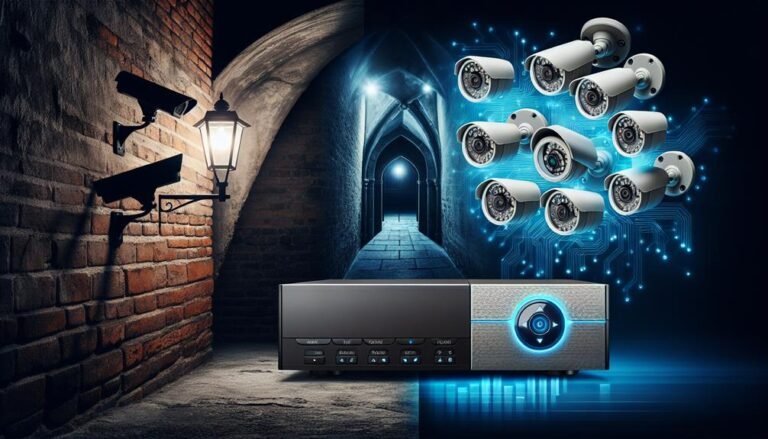CCTV Vs NVR

Closed-Circuit Television (CCTV) and Network Video Recorder (NVR) systems are two prevalent solutions for video surveillance, each with distinct features, advantages, and use cases. Understanding the differences between these two systems can help determine the best option for various security needs.
CCTV systems have been around for decades and traditionally use analog cameras connected to a Digital Video Recorder (DVR). The cameras capture video footage and send it to the DVR via coaxial cables. The DVR then processes and stores the video on a hard drive. CCTV systems are known for their reliability and straightforward setup. They are often used in smaller installations or environments where high-definition video quality is not a primary concern. However, analog CCTV systems are limited in terms of resolution, typically maxing out at around 720p to 1080p. They also require separate power supplies for the cameras and can involve more cumbersome wiring due to the use of coaxial cables.
On the other hand, NVR systems are a more modern solution, using IP (Internet Protocol) cameras that capture and transmit video data over a network. The cameras connect to the NVR via Ethernet cables, which can also provide power through Power over Ethernet (PoE) technology, simplifying the installation process. NVR systems generally offer higher video quality, often supporting resolutions from 1080p to 4K and beyond. This makes them suitable for environments where high-definition surveillance is critical, such as large commercial properties, airports, and urban surveillance.
NVR systems are also more scalable and flexible compared to traditional CCTV. Since IP cameras connect to a network, adding more cameras to an NVR system is easier and does not require extensive rewiring. Additionally, NVRs support advanced features like remote access, allowing users to monitor live feeds and review recordings from anywhere via the internet. This capability enhances security management and responsiveness.
However, NVR systems tend to be more expensive than traditional CCTV setups due to the higher cost of IP cameras and network infrastructure. They also require a more robust network setup, which can increase complexity and necessitate higher levels of technical expertise for installation and maintenance.
In summary, CCTV and NVR systems serve different needs in the realm of video surveillance. CCTV systems offer simplicity and reliability for basic surveillance tasks, while NVR systems provide superior video quality, scalability, and advanced features suitable for more complex and high-security environments. The choice between the two depends on specific requirements, including budget, desired video quality, installation complexity, and the need for advanced functionalities.
